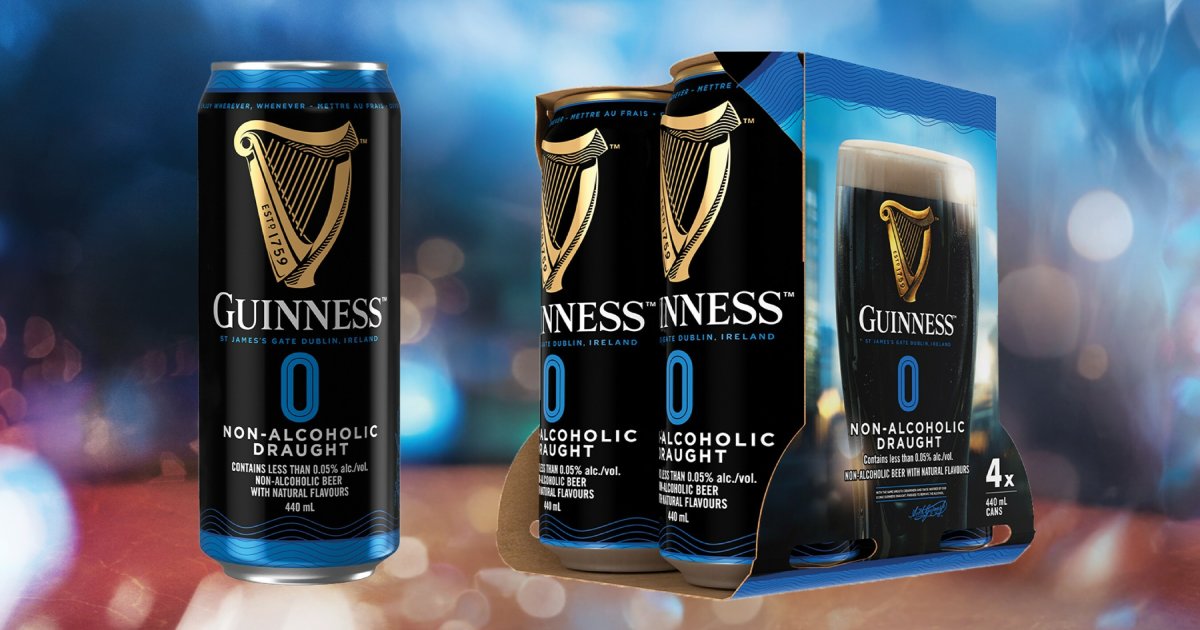Non-Alcoholic Beverages Remain Untapped for Licensing

By Mark Seavy
The non-alcoholic category is one of the fastest-growing verticals in the beverages market. But, unlike other businesses that have experienced a recent bump in popularity—like cannabis or eSports—the non-alcoholic category (which includes beer, wine, and mixed drinks) has yet to land many major licensing deals.
Sales of non-alcoholic beverages are forecast to increase 6% annually through 2027, yet most liquor companies haven’t mounted the extensive licensing programs that typically accompany their alcohol brands (revenue from which is expected to rise 1% over the same period). And while companies are deploying broad marketing programs for their non-alcoholic business, licensing industry executives say many are hesitant to deploy licensing programs yet given that the sales are still short of their alcohol counterparts.
In the case of Diageo’s Guinness beer brand, whose licensing is handled by Beanstalk, much of the current effort is behind partnerships in the food space—including meat, seafood, snacks, and sweets—with no immediate licensing plans for the non-alcoholic product, said Debra Restler, SVP Business Development and Marketing at Beanstalk.
Diageo has, however, spent heavily on advertising and promoting Guinness 0.0, which it launched in 2020. Guinness also recently announced it was investing $32.5 million to double production of 0.0 to reach 176 million pints annually at its St. James Gate brewery in Dublin, Ireland. Volume sales of Guinness 0.0 increased 50% during the one-year period that ended February 2024, Diageo reported. The 0.0 beer is sold through 1,700 pubs in Ireland with a goal of reaching 2,000 by year-end.
Anheuser-Busch InBev, whose portfolio includes Corona and Modelo beer brands as well as Budweiser, has no immediate plans for licensing its non-alcoholic Corona Cero label that was launched in 2022. Joester Loria Group represents Corona and Modelo for licensing in the U.S.
“There just hasn’t been that pent up demand yet for no-alcohol licensed products because so much of the focus of these programs, at least for now, has been on the core alcohol brands,” said a licensing executive at a major brewer. “If you are a t-shirt licensee and you are pitching to Walmart, those buyers are still asking for the bigger brands—the ones that are driving meaningful revenue—and it is going to be tough to add another SKU… unless it is a hot, trending product. Non-alcoholic is still a niche business [for licensing].”
It may not be niche for long, however. The non-alcoholic category has proved alluring to the much sought-after Millennial demographic, which has popularized events like Dry January and Sober October. In April 2024, 61% of U.S. non-alcoholic beer consumers were Millennials, up from 45% the year before, according to the research firm International Wine & Spirits Record (IWSR). Additionally, the IWSR reports that the majority of non-alcoholic wine consumers (59%) and non-alcoholic spirit consumers (66%) are Millennials. Non-alcoholic volumes grew 20% in 2023 and are expected to rise 17% annually through 2028, IWSR said.
With those statistics in mind, non-alcoholic craft beer brewer Athletic Brewing Co. has ventured into licensed co-branding with Netflix. It launched Geralt Gold, inspired by a character from The Witcher series, in May 2023. Athletic sold three million cases that year, generating $90 million in revenue, and has invested $100 million in manufacturing, CEO & Co-Founder Bill Shufelt told CNBC earlier this year. Athletic Brewing Co. also closed a $50-million funding round earlier this year as it increased production at its San Diego, CA facility.
“That is an investment in differentiated quality that this business segment has never seen before,” Shufelt said. “Ten years ago, there were no options [for non-alcoholic beer] and maybe the occasion for drinking is shrinking, but we want to build that back up.”




